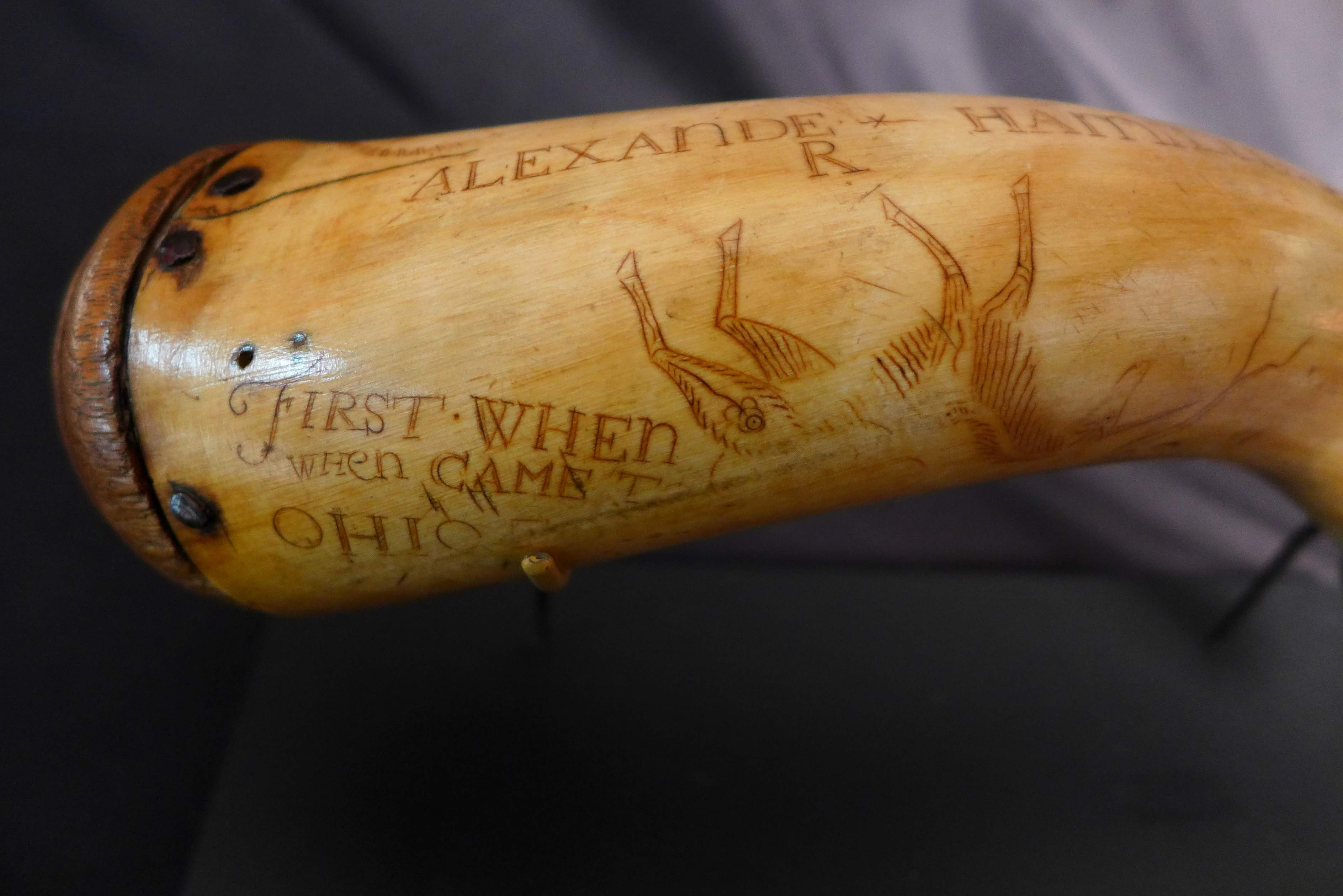CLOSTER, N.J. — On January 11, an iconic and highly important piece of American history crossed the auction block in New Jersey. It was a 1773 powder horn that almost certainly was personally inscribed and owned by Founding Father and first secretary of the treasury Alexander Hamilton.
Its $115,620 selling price (inclusive of 23 percent buyer’s premium) was a headline-maker, but the online bidding battle to own it was a major talking point after the sale for Sterling’s owner, Stephen D’Atri.
“It did not sell online, but it never would have made six figures, or even come close to it, had it not been for the bidders competing through LiveAuctioneers,” D’Atri said. “They pushed it to the limit.”
“As far as I’m concerned, we should buy a bottle of champagne for every one of the underbidders,” D’Atri continued. “In any auction, they’re second only to the winning bidder in terms of importance, and we’re just happy that LiveAuctioneers is able to bring us so many underbidders as well as winning bidders.”
D’Atri’s auctions are not traditional, in the sense that his auction proceedings do not take place live at his gallery. All bidding is conducted remotely – by phone, absentee or online – but anyone can inspect the goods in person at the gallery or obtain further information by phone or email.
“It used to be that every time I walked into a house to discuss a potential consignment, I would have to defend that I’m online only, but the truth is, no one who comes to auctions in person is prepared to buy something as important as the Alexander Hamilton powder horn in a public forum,” D’Atri said. “High-end bidders like the anonymity of the Internet or phone, and often they’re people who are too busy to attend an auction anyway. I don’t lose consignments based on the fact that I do not have a live audience, but I’ll bet I would lose quite a few if I didn’t offer online bidding.”
The powder horn is inscribed with Hamilton’s name and 1773, the year in which Hamilton, born out of wedlock in the Caribbean island of Nevis and later orphaned, entered what today is Columbia University. It is believed that Hamilton would have used it during the Revolutionary War and as an aide to General George Washington. The horn was accompanied by a letter from descendant Douglas Hamilton stating the horn belonged to his great-great-great-great-great-grandfather.
For information, 201-768-1140 or www.antiquenj.com.


